
Fuzzy Information and Engineering
metrics 2024
Innovating Solutions through Fuzzy Information and Applied Mathematics
Introduction
Fuzzy Information and Engineering is a prestigious open access journal recognized for its contributions to the interdisciplinary fields of applied mathematics, control systems engineering, artificial intelligence, and information systems, published by TSINGHUA UNIVERSITY PRESS. With an impact factor that reflects its increasing influence, the journal has maintained a strong position in the academic community since its inception in 2011, converging its focus between 2014 and 2024. The journal is indexed in notable databases such as Scopus, demonstrating solid rankings across its categories, including a commendable Q3 classification in applied mathematics and control systems engineering. By fostering innovative research and disseminating key findings, Fuzzy Information and Engineering serves as a vital platform for researchers, professionals, and students alike, promoting advancements in fuzzy systems and their applications within diverse domains. Notably, since transitioning to an open access model in 2015, the journal has enhanced accessibility for a global audience, encouraging collaborative efforts in academia and industry.
Metrics 2024
 0.30
0.30 1.30
1.30 1.30
1.30 25
25Metrics History
Rank 2024
Scopus
IF (Web Of Science)
JCI (Web Of Science)
Quartile History
Similar Journals
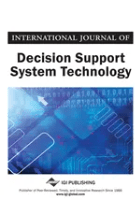
International Journal of Decision Support System Technology
Advancing Knowledge in Decision Support Technologies.International Journal of Decision Support System Technology, published by IGI Global, is a leading publication in the field of decision support systems, bridging the gap between theoretical advancements and practical applications. With its ISSN 1941-6296 and E-ISSN 1941-630X, this journal has been a prominent platform for researchers and professionals since its inception in 2009. Covering a wide range of topics within the realms of Computer Science and Modeling and Simulation, it currently holds rankings of Q3 and Q4, respectively, in the 2023 category quartiles. The journal is committed to disseminating innovative research that enhances decision-making processes through advanced computational techniques. Even without an open access option, it maintains a robust academic presence and aims to foster collaboration among scholars, making it an invaluable resource for students and professionals eager to stay at the forefront of technology and decision-making methodologies. With a focus on accessibility and relevance, the International Journal of Decision Support System Technology continues to shape the future of decision support research.
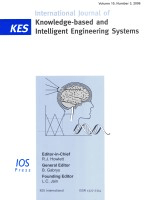
International Journal of Knowledge-Based and Intelligent Engineering Systems
Advancing the Frontier of Intelligent Engineering SystemsThe International Journal of Knowledge-Based and Intelligent Engineering Systems, published by IOS PRESS, serves as a vital platform for scholars and practitioners involved in the fields of Artificial Intelligence, Control and Systems Engineering, and Software Development. Founded in 2004 and continuously publishing through to 2024, this journal stands out with its comprehensive coverage of innovative methodologies and applications that leverage knowledge-based systems. Although currently listed in Q4 for Artificial Intelligence and Q3 for Control and Systems Engineering, it features an increasing trajectory in the scientific community, as indicated by its rankings in Scopus—which reflects the growing importance of intelligent engineering systems in contemporary research. With a commitment to disseminating cutting-edge research without open access constraints, this journal is essential for those seeking to understand and contribute to advancements in intelligent systems. Join a global community of researchers and industry leaders by engaging with the latest findings shared in this well-regarded journal.
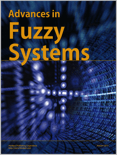
Advances in Fuzzy Systems
Connecting Ideas and Innovations in Fuzzy ScienceAdvances in Fuzzy Systems, published by Hindawi Ltd, is a premier open-access journal dedicated to the interdisciplinary field of fuzzy systems, mathematics, and engineering. Since its inception in 2008, this journal has provided a vital platform for researchers to share innovative ideas and advancements in fuzzy logic and its applications across various domains. With an impressive standing in the field, it holds a Q3 quartile ranking in the highly competitive categories of Computational Mathematics, Control and Optimization, and Control and Systems Engineering, reflecting its significant contribution to advancing knowledge and practices in these areas. The journal's Scopus rankings highlight its relevance, with rankings placing it in notable percentiles, ensuring that the research published is both influential and widely recognized. Researchers, professionals, and students can access a wealth of high-quality articles that drive progress in fuzzy systems methodologies, making it an essential resource for anyone looking to enhance their understanding and application of this critical field.

JOURNAL OF MULTIPLE-VALUED LOGIC AND SOFT COMPUTING
Fostering Collaboration in Logic and Computation.Journal of Multiple-Valued Logic and Soft Computing, published by Old City Publishing Inc, is a dedicated forum for advancing the fields of logic and soft computing. Since its inception in 2003, this journal has positioned itself as a valuable resource for researchers, professionals, and students interested in the complex interplay between multiple-valued logic systems and computational methodologies. With a broader reach into theoretical computer science, the journal is categorized in the Q4 quartiles across key areas, showcasing its role in disseminating relevant research despite its current position. This peer-reviewed publication silos essential discussions and breakthroughs that serve as a foundation for ongoing innovation in logic and computing theories. Though not currently open access, the journal continues to attract critical contributions that underscore its commitment to advancing knowledge in mathematical logic and software development through its effective symposium-like format, promoting collaboration among various stakeholders in the scientific community.
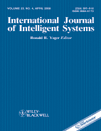
INTERNATIONAL JOURNAL OF INTELLIGENT SYSTEMS
Driving Progress in Theoretical Computer ScienceInternational Journal of Intelligent Systems, published by Wiley-Hindawi, stands at the forefront of the Artificial Intelligence, Human-Computer Interaction, Software, and Theoretical Computer Science fields. With an impressive Q1 ranking across multiple categories in 2023 and a robust track record since its inception in 1986, this journal is essential for researchers, professionals, and students alike who are eager to explore cutting-edge innovations and theoretical advancements. Located in the United Kingdom, the journal operates under the esteemed Wiley-Hindawi publishing house, ensuring a broad dissemination of high-quality research articles. The journal's diverse scope encompasses advancements in intelligent systems and their practical applications, fostering an interdisciplinary dialogue that encourages collaboration across various domains. Although Open Access options are not available, subscribers benefit from the rich repository of knowledge this journal offers, making it a vital resource in the rapidly evolving landscape of intelligent technologies.

INFORMATICA
Connecting theory and practice through rigorous scholarship.INFORMATICA, ISSN: 0868-4952, E-ISSN: 1822-8844, is a prestigious academic journal published by the Institute of Mathematics and Informatics, located in the Netherlands. Established in 1990, this journal has carved a significant niche in the fields of Applied Mathematics and Information Systems, holding a commendable Q2 ranking in both categories as of 2023. With a Scopus ranking of #68 in Applied Mathematics and #123 in Information Systems, INFORMATICA boasts an impressive percentile standing, demonstrating its high impact and relevance in contemporary research. The journal promotes rigorous scholarship, disseminating innovative research findings and methodologies that contribute to the advancement of mathematical and informatics theories and practices. Although it does not currently operate as an open-access journal, it provides invaluable resources for researchers, professionals, and students looking to deepen their expertise and knowledge in these dynamic fields. With a commitment to fostering academic exchange and interdisciplinary collaboration, INFORMATICA remains an essential platform for those committed to pushing the boundaries of knowledge in mathematics and informatics.
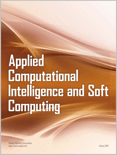
Applied Computational Intelligence and Soft Computing
Unleashing Potential through Soft Computing TechniquesApplied Computational Intelligence and Soft Computing, published by HINDAWI LTD, is a premier open access journal that has been disseminating critical research since 2009, focusing on the intersection of artificial intelligence and soft computing. With an impressive array of quartile rankings in 2023, including Q2 in Civil and Structural Engineering and Computational Mechanics, this journal has established itself as a significant contributor to the fields of computer science and engineering. Based in Egypt, it plays a vital role in advancing knowledge by providing researchers, professionals, and students with easy access to high-quality studies. The journal’s rigorous peer-review process ensures that only the most impactful research is highlighted, making it an essential resource for those looking to stay abreast of the latest innovations and methodological advancements in applied computational intelligence. Its Scopus rankings further affirm its influence and reputation within the academic community, exemplifying its commitment to facilitating collaboration and fostering intellectual discourse in various scientific domains.
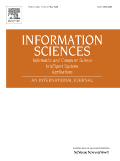
INFORMATION SCIENCES
Fostering Excellence in Information SciencesINFORMATION SCIENCES, published by Elsevier Science Inc, is a premier peer-reviewed journal that has become instrumental in advancing the field of information science since its inception in 1968. With an impressive array of quartile rankings in 2023, including Q1 in Artificial Intelligence, Computer Science Applications, Control and Systems Engineering, Information Systems and Management, Software, and Theoretical Computer Science, this journal serves as a vital resource for researchers and professionals looking to explore cutting-edge theories and practical applications within these domains. The journal is indexed extensively, with notable Scopus rankings, reflecting its significance and influence in the academic community—ranked 6th in Theoretical Computer Science and 10th in Information Systems and Management, among others. Although it does not currently offer an open-access option, the depth of research published within INFORMATION SCIENCES ensures that it remains a key reference point for advancing academic inquiry and addressing complex challenges in the information landscape.
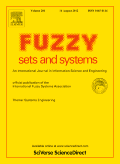
FUZZY SETS AND SYSTEMS
Bridging Theory and Practice in Fuzzy SetsFuzzy Sets and Systems, published by Elsevier, is a leading international journal that delves into the intricate field of fuzzy logic and its applications in various domains, including artificial intelligence and computational mathematics. With a significant impact within its categories—ranking Q2 in Artificial Intelligence and Q1 in Logic for 2023—this journal offers a robust platform for scholars to share cutting-edge research and developments. Focusing on the application of fuzzy set theory to enhance decision-making processes, modeling, and data analysis, it caters to a diverse audience of researchers, industry professionals, and advanced students. The journal's rigorous review process and prestigious ranking, evidenced by its impressive Scopus metrics—2nd in Mathematics & Logic and 120th in Computer Science—underscore its importance in the academic landscape. Contributors are encouraged to explore innovative methodologies, theoretical advancements, and interdisciplinary approaches. Fuzzy Sets and Systems continues to serve as a vital resource for advancing knowledge and fostering collaboration within the fuzzy logic community.
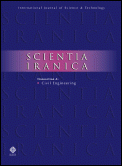
Scientia Iranica
Driving the future of multidisciplinary research.Scientia Iranica is a multidisciplinary journal published by SHARIF UNIVERSITY OF TECHNOLOGY, serving as a vital platform for researchers and professionals in the fields of Chemistry, Civil and Structural Engineering, Computer Science, Engineering, Industrial and Manufacturing Engineering, Materials Science, Mechanical Engineering, and Physics and Astronomy. Established in 1999 and converging until 2024, the journal has swiftly ascended in the academic realm, achieving a commendable status with several Q3 classifications across a variety of disciplines and a Q2 in Engineering (miscellaneous) in its 2023 quartile rankings. With its notable Scopus Ranks reflecting a consistent percentile presence in several categories, Scientia Iranica emphasizes rigorous peer-reviewed research and cutting-edge findings, thereby contributing substantially to the advancement of knowledge in its areas of focus. Although not available as open access, the journal remains essential, offering critical insights and fostering collaboration among scholars in Iran and globally, thus enhancing the visibility and impact of innovative research outcomes.